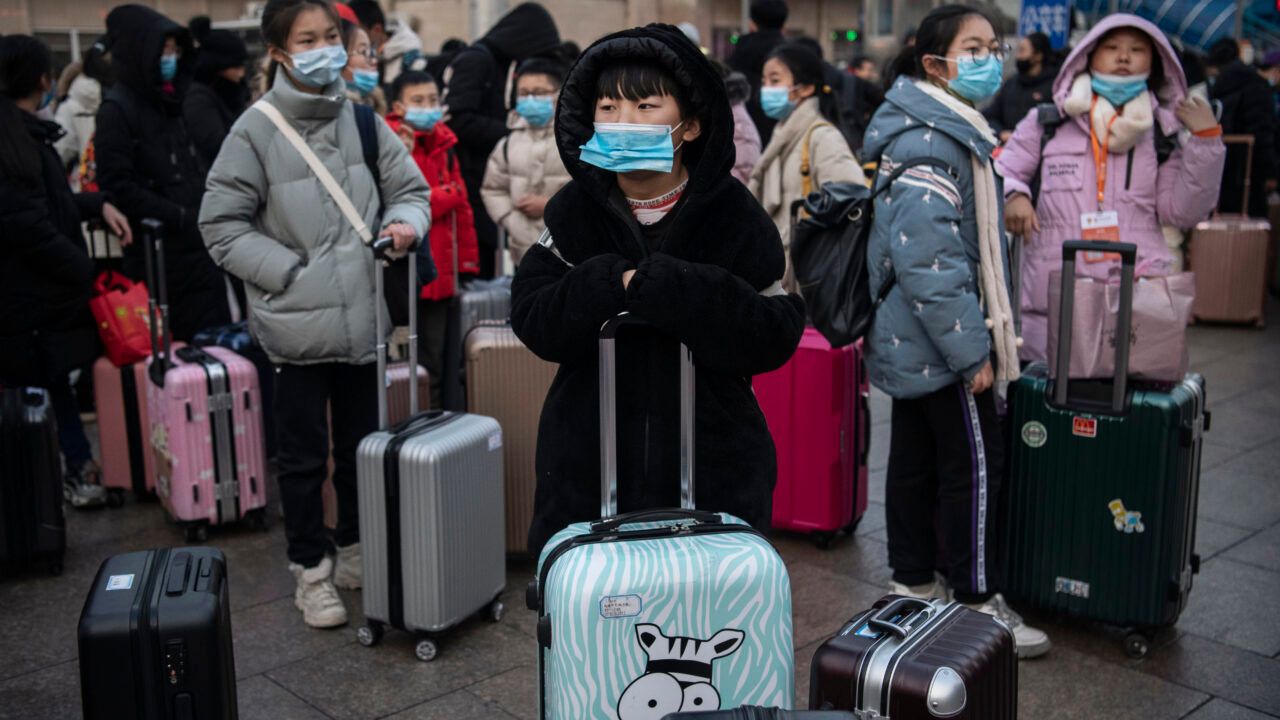My phone is set to silent when the message arrives. Later, when checking the time, I see it previewed on the screen. I forget all about the time.
It begins with a line of text, but what I notice first is the emojis: three lines of identical skulls. The text (“Have you heard of the black death. This is what it dose.”) would be threatening if it weren’t for the grammar and the spelling—reminders that its author, an earnest boy with a vast imagination, is only eight.
The preceding correspondence, including a photo of the boy and his dad sporting face masks and the words: “The good news is that im going back shortly. Bad news is THIS CORONAVIRUS IS MAD. GRRRRRRRRRRRRRRRR!!! WHY WHY WHY WHY WHY,” followed by some highly expressive emojis, was my idea—but this wasn’t quite what I had in mind.
When, a few weeks after the school year started, our son’s Chinese friend was notably absent, I decided to track down his email address and see how they were. We knew he had gone to China to visit relatives, and that travel restrictions aimed at containing the virus were delaying their return. Our son responded to the opportunity with gusto, happily typing a few choice words—“hurry up and get back from China”—before spewing forth a seemingly random but painstakingly considered stream of emojis. It wasn’t a detailed account of the school year to date, followed by words of hope and love, but it would do.
The plight of our son’s friend and his family was not the only reason the virus was on my mind. At the time, my husband had a work trip to Frankfurt booked for the end of the month. I worried that if he went, he might have trouble coming home.
Granted, Europe was largely unaffected by the virus at that stage, but this could change without warning, and the chances of disaster striking there were surely higher than here.
Here, the small island below mainland Australia, next stop Antarctica, it’s easy to assume the big bad world is somehow “up there”. I couldn’t bear the thought of my husband venturing out then struggling to return.
In fact, he travels several times a year, so we routinely take this risk. Viruses, volcanic ash, wild weather, security threats, terrorist attacks and transport strikes can all ground flights anywhere, any time, without warning, but when there’s not an immediate, specific fear to fixate on, we simply don’t think twice.
In the end, my husband was forced to cancel this particular trip for other reasons, so we were spared the decision—well, almost.
You see, I, too, had booked a flight before the outbreak. I’m on the board of a national not-for-profit and, in less than a week, we have a training weekend.
My flight is only a domestic one, a mere 110 minutes to Sydney, but if an outbreak forced a total travel ban, the distance might suddenly be insurmountable. To make matters worse, Tasmania is famous for its strict biosecurity precautions: at Hobart airport, sniffer dogs aren’t only trained to detect illicit drugs, but also fresh produce. If the authorities exercise this level of vigilance to stop fruit fly larvae crossing our border, imagine their response to a dangerous virus.
It’s remarkable, when you think about it, that people travel from one end of the world to the other at all, let alone book flights frequently and casually, even when it means leaving their families behind. I don’t know what’s more astonishing: the advances that made long-distance air travel possible in the first place; or the faith we have that when we book a return flight, we will be able to return. We’re talking about distances that are difficult to fathom, and a means of transportation that an ordinary person could never procure, let alone pilot, alone.
The speed and seriousness with which the world has already responded to the new coronavirus has reminded me anew that while we’re usually in control of where we fly and how much we pay, when we depart and return, these choices can be taken from us without warning or consultation. Above all, it’s a reality check. We’re never really in control of our lives, no matter how much we wish to believe otherwise. We can mitigate risks, but we can never totally avoid them; the big bad world is, well, everywhere.
I could easily pull out of this training weekend, and the next, just in case. I could quit the board altogether, and urge my husband to quit his job, we could resolve to never be parted by oceans and time zones again. But this would be a gamble dictated by worst-case, not most-likely, scenarios.
It’s with this in mind that I resolve to get on my plane this Friday. The thought of being somehow seperated from my family is terrifying, but many thoughts are, and the risk that a Berlin Wall equivalent will be erected in my absence remains remote. Further, there are countless other ways the world could part us, even if I stay.
And so, instead of obsessing over worst case scenarios, I resolve to go away as planned and, God-willing, to come home. Hopefully by then, that earnest boy and his family will be home too.
*Publication (Ozy) no longer exists.
